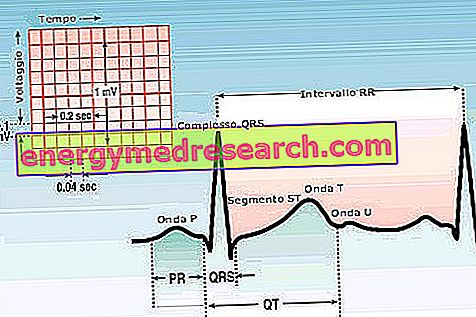Generality
Glutamine is a conditionally essential amino acid, because even though it is synthesized by the human organism (see image), in some conditions it requires adequate dietary intake.

Constituting the most abundant amino acid in the human body, the need for glutamine can significantly increase during stress, surgical trauma, burns, tumors or particularly intense exercise.
Glutamine is widely present both in products of animal origin, such as meat, fish, eggs and dairy products, and in vegetable products.
From the biological point of view, glutamine intervenes:
- In the metabolism and excretion of nitrogen compounds (urea cycle);
- In the transport of amino groups;
- In the synthesis of nucleotides;
- In the synthesis of bioactive molecules such as glutathione and glucosamine;
- In maintaining the functionality of the immune system.
In light of its biological role, glutamine is successfully used in both clinical and sports settings.
Functions and Biological Role
Glutamine intervenes :
- in ammonia detoxification:
- glutamine is a true non-toxic transporter of amino groups that can cross cell membranes. Glutamine enters the bloodstream and reaches the liver. Within the hepatic mitochondria, glutamine releases its amino group, which is converted into NH4 + or ammonium ion.
- Ammonium ion is toxic to the body's cells, particularly to the brain. In the liver, NH4 + is incorporated into the non-toxic urea molecule. Urea produced by the liver is transported through the blood to the kidneys for urinary excretion.
- In immune activity , where it plays an energy support role in rapidly multiplying cells such as lymphocytes and macrophages.
- While moderate exercise increases resistance to various types of infections, the exhaustive one, especially when combined with low-calorie diets, increases sensitivity to viral and bacterial infections.
- In brain activity, where it has a stimulating activity. Glutamine is able to penetrate the blood-brain barrier and enter the brain, where it is converted into glutamate, the most important and widespread excitatory neurotransmitter of the central nervous system. Glutamine is also a precursor to GABA, a neurotransmitter that has inhibitory effects on nerve transmission.
In Sport
As for the functions of greatest sporting interest, glutamine also appears to intervene :
- In the increase in volume of muscle cells, favoring the entry of water, amino acids and other substances into cells. This activity, according to some researchers, would stimulate protein synthesis favoring the increase of muscle mass.

- In recovery after an effort: some studies show a role of glutamimina in favoring the increase in stocks of muscle glycogen during recovery, probably due to the increased entry of water into the cells (remember in this regard that water it is essential in glycogenosynthesis, since for every gram of glycogen produced about 2.7 g of water is bound to it).
- In the stimulus of growth hormone secretion; if taken in conditions of low blood sugar levels, glutamine seems to stimulate the secretion of GH. To optimize this action, glutamine should be taken before going to bed.
- In the detoxifying action and in the regulation of blood and urinary pH with a buffering effect (it yields ammonia at the kidney level, which is charged with an H + hydrogenion, turning into ammonium ion NH4 +, which is then eliminated with the urine).
- In the antioxidant action: it intervenes in the formation of glutathione, a powerful exogenous antioxidant consisting of glycine, cysteine and glutamic acid. The latter can be obtained from glutamine by transferring the ammonium ion.
Indications
Why is glutamine used? What is it for?
The usefulness of glutamine supplementation is closely associated with the field of application.
In the clinical setting, glutamine is used as an agent:
- immunomodulatory;
- catabolic;
- Antioxidant;
- Mucoprotettivo.
In sports, on the other hand, ergamine is ascribed to glutamine, anticatabolic and myoprotective properties.
All this could be traced back to the precious biological role of glutamine.
Property and Effectiveness
What benefits has glutamine shown during the studies?
A correct treatment of the integrative efficacy of glutamine cannot ignore the appropriate discrimination of the application areas.
Glutamine and clinic
In the clinical setting, the use of glutamine, at significantly higher doses than in sports, would have been useful in various conditions.
More precisely, glutamine:
- It would protect the intestinal mucosa from the damage caused by chemo and radiotherapy;
- It would reduce the permeability of the intestinal mucosa and the consequent non-specific activation of the mucosal immune system; this effect could prove to be valuable in the treatment of dripping bowel syndrome, irritable bowel and inflammatory bowel disease.
- It would safeguard the normal cellular turnover;
- It would preserve the correct functionality of the immune system;
- It would contrast the structural and functional decline during sarcopenia and chachessia.
Glutamine and sport
Different, and unfortunately not completely accepted by the scientific community, would be the biological potential of glutamine in sports.
In fact, this amino acid is ascribed:
- Detoxifying properties, very important during high-protein diets;
- Immunoprotective, valuable activities during overtraining syndrome;
- Ergogenic activities;
- Antioxidant activity, valuable in protecting the muscle from the damaging action of free radicals produced during intense training;
- Anabolic activities, linked both to an improvement in the rate of protein synthesis and to the capacity, currently denied, to stimulate the growth hormone secretion.
Despite the abundant use of these supplements in sports, there are still no clear, reproducible and statistically significant data on the biological efficacy of this amino acid.
Doses and method of use
How to use glutamine
As proposed by the various international public health agencies and adequately documented in the literature, glutamine dosages would vary considerably depending on the objectives.
In sports, for example, the optimal range seems to be between 1.5 and 4 g per day.
In the clinical setting, on the other hand, the dosages can grow significantly and reach 8g per day in the case of chemotherapy or radiotherapy, or 21g / day in the case of large burns, traumas or other diseases related to a serious cachectic or immunosuppressive state.
In order to improve absorption and reduce the occurrence of potential side effects, it is recommended to divide the entire dosage in several daily doses.
In the sports world, based on the effects you want to achieve, it is suggested to take it:
- Pre work-out, together with carbohydrates, to optimize performance and reduce oxidative damage induced by intense physical exercise;
- Post work-out with simple sugars and branched chain amino acids to optimize muscle recovery.
- Fasting , possibly before going to bed, to stimulate GH secretion
Side effects
The use of glutamine was generally safe and well tolerated at the suggested doses.
The appearance of transient abdominal disorders, such as swelling and constipation, has rarely been observed.
In psychiatric patients, however, even at low doses of glutamine, according to some authors, it would have exacerbated manic symptoms.
Complications
When should glutamine not be used?
The use of glutamine is contraindicated in case of hypersensitivity to the active ingredient.
Pharmacological Interactions
Which drugs or foods can change the effect of glutamine?
From the pharmacokinetic point of view, the interactions between glutamine and other active ingredients are not very relevant.
More important, on the other hand, would be the protective effect of glutamine against mucosal damage induced by drug therapies with methotrexate and indomethacin.
Precautions for use
What do you need to know before taking glutamine?
The use of glutamine supplements should be avoided, or strictly supervised by medical personnel, during pregnancy and lactation.
Similar precautions should be reserved for patients with kidney failure or liver disease.
All about Glutamine - Video
Watch the video
X Watch the video on youtube




